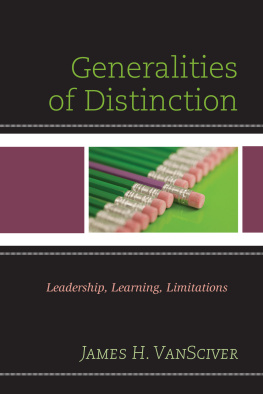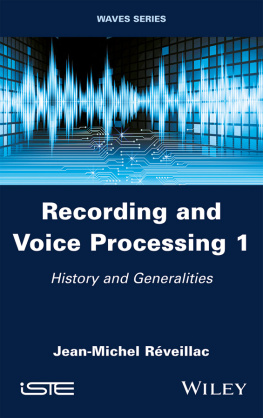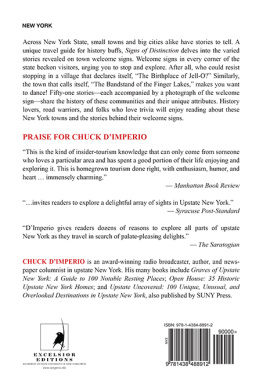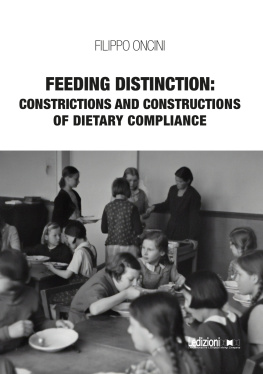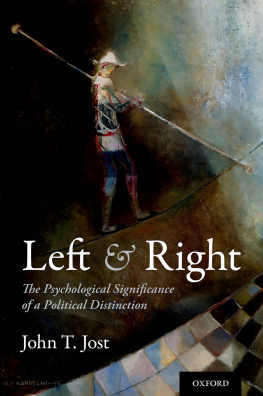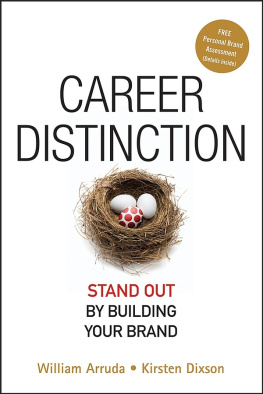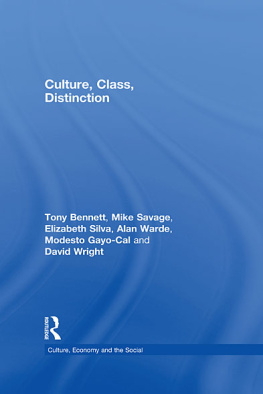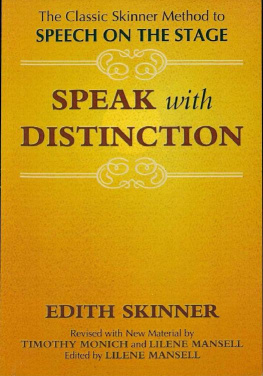VanSciver - Generalities of Distinction
Here you can read online VanSciver - Generalities of Distinction full text of the book (entire story) in english for free. Download pdf and epub, get meaning, cover and reviews about this ebook. year: 2015, publisher: Rowman & Littlefield Publishing Group, Inc., genre: Politics. Description of the work, (preface) as well as reviews are available. Best literature library LitArk.com created for fans of good reading and offers a wide selection of genres:
Romance novel
Science fiction
Adventure
Detective
Science
History
Home and family
Prose
Art
Politics
Computer
Non-fiction
Religion
Business
Children
Humor
Choose a favorite category and find really read worthwhile books. Enjoy immersion in the world of imagination, feel the emotions of the characters or learn something new for yourself, make an fascinating discovery.
Generalities of Distinction: summary, description and annotation
We offer to read an annotation, description, summary or preface (depends on what the author of the book "Generalities of Distinction" wrote himself). If you haven't found the necessary information about the book — write in the comments, we will try to find it.
Generalities of Distinction — read online for free the complete book (whole text) full work
Below is the text of the book, divided by pages. System saving the place of the last page read, allows you to conveniently read the book "Generalities of Distinction" online for free, without having to search again every time where you left off. Put a bookmark, and you can go to the page where you finished reading at any time.
Font size:
Interval:
Bookmark:
Generalities of Distinction
Generalities of Distinction
Leadership, Learning, Limitations
James H. VanSciver
ROWMAN & LITTLEFIELD
Lanham Boulder New York London
Published by Rowman & Littlefield
A wholly owned subsidiary of The Rowman & Littlefield Publishing Group, Inc.
4501 Forbes Boulevard, Suite 200, Lanham, Maryland 20706
www.rowman.com
Unit A, Whitacre Mews, 2634 Stannary Street, London SE11 4AB, United Kingdom
Copyright 2015 by James H. VanSciver
All rights reserved . No part of this book may be reproduced in any form or by any electronic or mechanical means, including information storage and retrieval systems, without written permission from the publisher, except by a reviewer who may quote passages in a review.
British Library Cataloguing in Publication Information Available
Library of Congress Cataloging-in-Publication Data Is Available
ISBN 978-1-4758-2240-3 (cloth : alk. paper) ISBN 978-1-4758-2241-0 (paperback : alk. paper) ISBN 978-1-4758-2242-7 (electronic)
 The paper used in this publication meets the minimum requirements of American National Standard for Information SciencesPermanence of Paper for Printed Library Materials, ANSI/NISO Z39.48-1992.
The paper used in this publication meets the minimum requirements of American National Standard for Information SciencesPermanence of Paper for Printed Library Materials, ANSI/NISO Z39.48-1992.
Printed in the United States of America
Dedicated to the memory of my high school guidance counselor, Richard Doney, who saw in me what others did not and, as a result, created my career and thus changed my life,
and
all of those dedicated and hardworking educators in our schools, the students who take
advantage of the worlds best educational system, and the devoted and supportive
parents who back both their children and their childrens educators.
From those to whom much has been given, much is expected.
(Bible, King James Version)
Contents
Over twenty-five years ago, my husband thought he had an idea for a text about education, exploring the perceptions of what was supposed to be and comparing them to what was. He wanted the work to be both informative and inspirational, while adding a touch of levity to the writings. He felt that, in public education, we take ourselves too seriously, we tend to scoff at any semblance of fun, and those who attempt to liven it up a bit are often put back in their places with a raised eyebrow.
His thinking, while impacted by over four decades of experience, has remained much the same. He felt he had better put the finishing touches on this effort before he was unable to do so. So, it is time to release the hounds.
The thinking on these pages is impacted by a lifetime of living and over forty-three years of an exciting and entertaining career laboring for our future between the walls of our public schools. In addition, he has given serious thought and thanks to others who have made their mark on his mind.
Dr. Augustus Napier, in his book The Family Crucible , a text dealing with the intense experience of family therapy, writes about how he and his associate, Dr. Carl Whitaker, have come to understand that, while they are attempting to support families in their systems, the therapists must also understand their own and unique systems.
Carl and I have offered to represent the familys need for contact with an outside social system, and we ourselves are a social system, too, he said. Before that, though, we are separate individuals, with our own professional and personal histories, our own families, and our own separate views of the world. All this separate experience is part of what we bring to the family.
For Jim, this is a crucial point. As he sees public education as his extended family, he must first understand himself in order to understand the lens through which he perceives that family. Also, those who chose to read this work must have a sense of his background and experience in order to consider why he holds the views he does.
Dr. Morris Massey worked as Associate Dean and Professor of Marketing at the University of Colorado at Boulder during the late 1960s and into the 1970s. Jim was particularly taken by work he completed which dealt with values, especially his video program, What You Are Is Where You Were When. Massey described three major periods during which ones values are developed.
During the Imprint Period , up to age seven, people are like sponges absorbing everything around them unconditionally. The Modeling Period extends, he said, from age eight through thirteen, and is when we copy others. Rather than through blind acceptance, we test values and experiences, to see how they feel. During the Socialization Period , between ages thirteen and twenty-one, we are largely influenced by our peers. We often turn to people who seem more like us. However, the impact of the media, social networks, and the like cannot be discounted.
The Imprint Period , Massey explained, is so powerful because that is when our values foundation is pretty much locked in. What we see as good and bad, important and unimportant, and so forth, can be tracked back to this age. That is why, he pointed out, it is so important to take extreme care in what is happening to children as they pass through this period.
In addition, he reported, if you want to track cohorts of people to determine why they view the world as they do, if you look back to what was happening in the world during their Imprint Period time, when they were value imprinting, their views and perceptions are fairly predictable. A disclaimer, he adds, is to remember that when this is done, there will always be exceptions. However, most people pretty much fall in line with this model. An example he gives is why those who survived the Great Depression were so obsessed with putting money away for that proverbial Rainy Day .
As we progress through life, he adds, we pretty much stick to those values. The only way we may be shocked out of that pattern is to experience what he identified as a Significant Emotional Event, as Massey called it, a brush with death, getting fired from a job, some experience that forces us to consider that our view of the world is not correct and that we have to reconsider how we view life.
As Jim considered the words he has placed on the following pages of this text, he looked back on his life to consider how he passed through each of these three periods, to remember what was happening in the world as well as the experiences he had during those years. He knows they influenced his thinking. As the reader, you must also know that.
These are Jims thoughts, borne out of his whole life experience. To consider if they are right or they are wrong is not the heart of the matter. That debate might not ever be completed. However, to agree that they are Jims perceptions is acceptable. They come from his personal and professional experiences. They are his generalities of distinction .
Lets take a minute to consider what has impacted his thinking of the way things are . Jim grew up poor, very poor. His father graduated from high school with a general education (that was one of the tracks in the late 1930s), and soon afterwards served in World War II. His mother dropped out of high school and trained to be an airplane spotter at the beginning of World War II. His family, two brothers and a sister and Jim, grew up in a small houseboat that was planted in the marsh next to a creek. It was not built well and, during the winter, it was not unusual to find snow blown into the corners of the bedrooms.
Pipes routinely froze during the winter. They lived on low land, and it was not uncommon to have to walk through ankle-deep water down the lane after a bus discharged them after school. They were rescued out the back window of the house during a major hurricane in 1962, a storm that pushed the tides to eight feet above normal. The flood destroyed everything they owned, including the two rickety cars his parents owned and everything in the house. The insurance company proclaimed the storm an Act of God and did not pay a cent. Jim still marvels at how his father was able to regroup, sustain them as a family, and weather this storm.
Next pageFont size:
Interval:
Bookmark:
Similar books «Generalities of Distinction»
Look at similar books to Generalities of Distinction. We have selected literature similar in name and meaning in the hope of providing readers with more options to find new, interesting, not yet read works.
Discussion, reviews of the book Generalities of Distinction and just readers' own opinions. Leave your comments, write what you think about the work, its meaning or the main characters. Specify what exactly you liked and what you didn't like, and why you think so.

